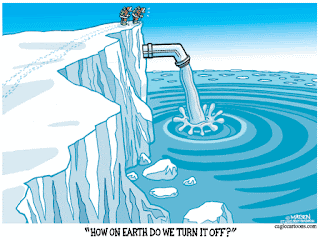 "The NDP environmental plan sets absolute caps on major industrial emitters, which account for 50% of Canada’s greenhouse gas emissions. These emitters would be required to purchase emissions credits at market-based prices. In year one alone, with carbon prices projected to exceed $35 per ton, auctioning credits would generate at least $2.5-billion. All of these funds would be invested in developing green technologies and making them affordable for the average consumer.“The cap and trade system ensures that big polluters pay their fair share, and it makes it possible for more people to afford green solutions.” This is the bible as expressed by Jack Layton.
"The NDP environmental plan sets absolute caps on major industrial emitters, which account for 50% of Canada’s greenhouse gas emissions. These emitters would be required to purchase emissions credits at market-based prices. In year one alone, with carbon prices projected to exceed $35 per ton, auctioning credits would generate at least $2.5-billion. All of these funds would be invested in developing green technologies and making them affordable for the average consumer.“The cap and trade system ensures that big polluters pay their fair share, and it makes it possible for more people to afford green solutions.” This is the bible as expressed by Jack Layton.Sounds good doesn't it? The fact that this really is a tax doesn't seem to occur to Jack. Where does the $2.5 billion come from? If it comes from polluting industry, will Jack pass a law to say that the companies cannot pass those costs on to consumers? Fat chance that he will or if would even be enforceable. Jack has his head in the money clouds.
The key term in Jacko's explanation is "market-based". We already know that brokers line C-Green are buying farm credits for $1 which will be sold to polluters for $XXX. Who knows.
Some of you may remember back in the mid 1980s, a federal program called Scientific Research Tax Credit - SRTC for short. There are many parallels between Cap and Trade and SRTC. To get an SRTC you needed to commit to doing research. Thousands of Canadian companies made that commitement. In fact thousands of companies were created to qualify for SRTCs. Then those qualified companies turned around and sold their credits to other companies at a discount. Cash flowed into the hands of companies who shuffled paper at the expense of the government. This is what happens when the market is allowed to play with government money - as is the case with Cap and Trade.
And what about Harper's hard cap proposal. Firstly, it will take 15 years to implement, will be hard to enforce, will not reduce pollution (just the growth of pollution) and there is no real plan to fund alternative forms of energy or prossesses that output less carbon. That will be up to the marketplace to figure out and fund. It, also, will be a tax on Canadians because the polluters will need to find ways to reduce their emissions and it will take money, charged to their customers, to do so.
Here is the bottom line. There is no one way to fix the climate. It will take caps and reduction targets, it will take a concerted effort by companies and citizens; and will cost us money, whether it be taxes or costs at the register. It is time to take the politics out of the issue and find solutions.



No comments:
Post a Comment